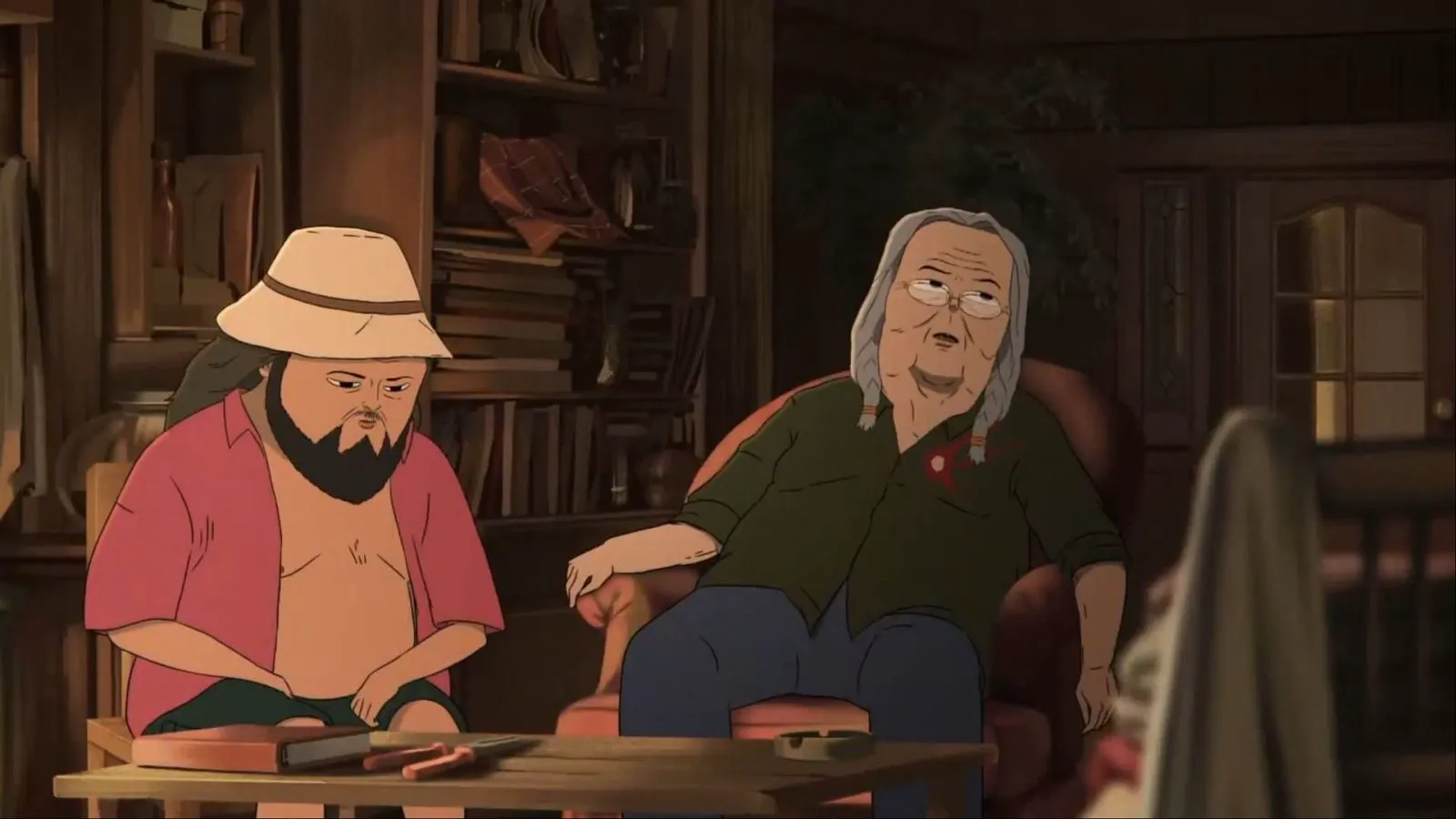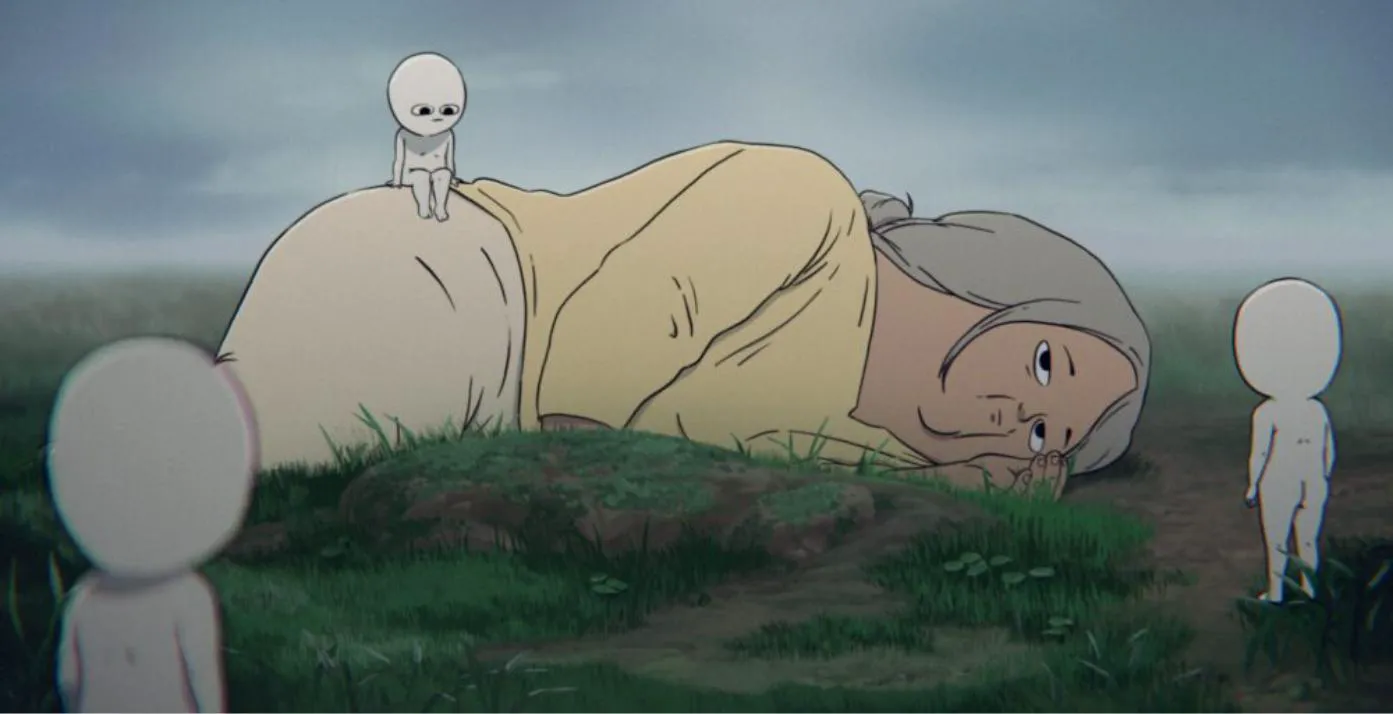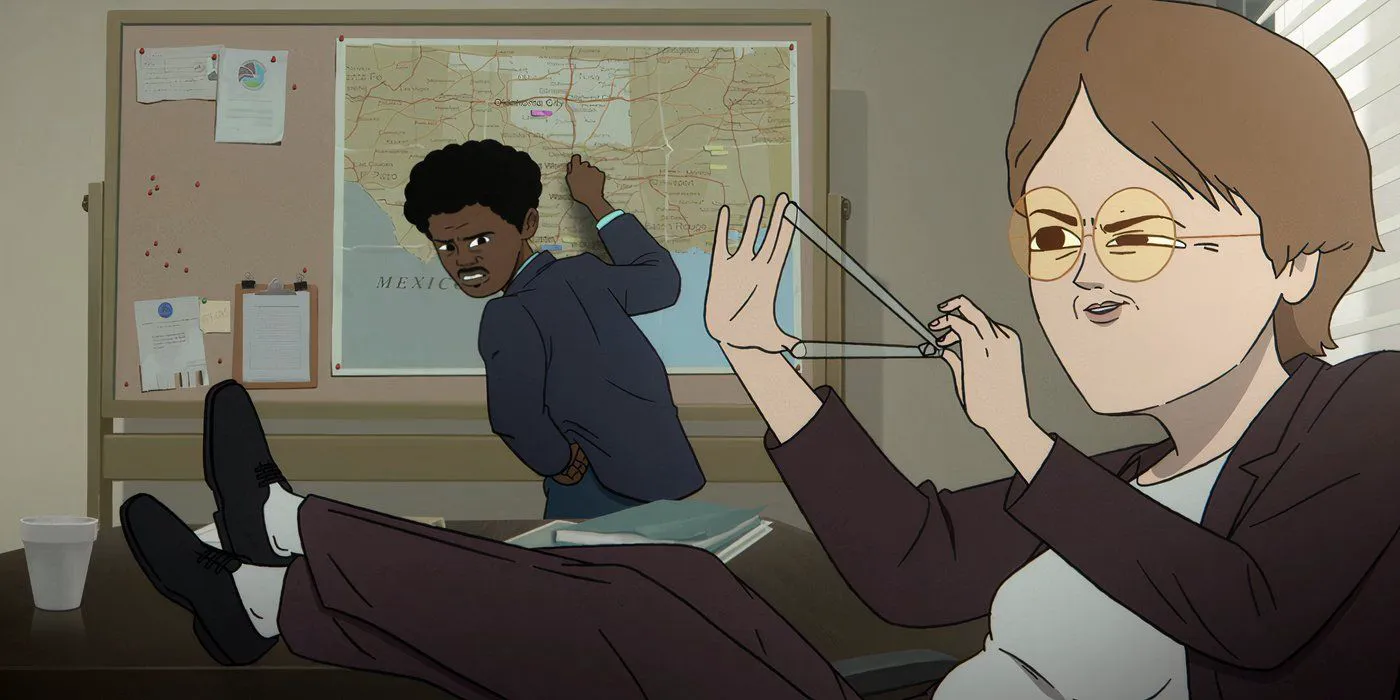“Frequent Symptoms”: A Satirical Animated Series That Bites
Imagine a caricature of a Redditor, an eco-activist named Marshall, stumbling upon a mythical blue mushroom in Peru. This isn’t just any mushroom; it’s a panacea, capable of curing any disease and even resurrecting the dead. Suddenly, Marshall becomes the target of shadowy figures, navigating a world of deadly encounters and injuries, ultimately escaping with his newfound immortality. His plan? To cultivate these miracle mushrooms in the US and save the lives of the terminally ill. But his noble intentions are met with resistance from all sides: Big Pharma, the government, and even his fellow mycologists. Forced into hiding, Marshall desperately uses his limited supply of mushrooms, placing his trust in Frances, a childhood acquaintance who harbors a secret role within “Big Pharma.”

Scene from the animated series “Frequent Symptoms”
A Timely Satire on Healthcare and Big Pharma
The failings of the American healthcare system have long been a source of outrage and internet memes. A single uninsured hospital visit can lead to lifelong debt. The predatory practices of pharmaceutical companies, inflating prices on essential medications and making them inaccessible to millions, are another cause for concern. Their pursuit of profit leads them to stifle competition, delay the release of affordable alternatives, or, worse, addict citizens to opioids (as explored in the miniseries “Dopesick”). In a hypothetical 2025, this already controversial industry is constantly in the headlines: an anti-vaxxer with a worm-eaten brain becomes the Minister of Health, while people celebrate Luigi Mangione, who murdered the CEO of UnitedHealthcare, as a hero. In short, “Frequent Symptoms” would be relevant at any time, but it’s an especially sharp commentary on the present.

Scene from the animated series “Frequent Symptoms”
Genre-Bending Brilliance
But the timely release is not the only advantage of this new series. “Frequent Symptoms” is a masterclass in blending a paranoid conspiracy thriller with anti-capitalist satire, a philosophical drama about connecting with nature, and a comedy about an underdog saving the world. This kind of genre-bending and complex plot is usually expected from a prestigious HBO series, not an animated show—especially not from the creators of “Scavengers Reign.” Their previous project was the antithesis of “Symptoms”: a cohesive story where dialogue and exposition were sacrificed to the boundless imagination of the animators, who patiently observed the bizarre flora and fauna of an alien planet. “Symptoms” also has similar metaphysical moments—people who eat the mushrooms are briefly transported to a psychedelic reality, experiencing something akin to a drug trip.

Scene from the animated series “Frequent Symptoms”
Absurdity as a Tool for Commentary
The animated nature of “Symptoms” is mainly evident in the character designs—caricatured faces and unnaturally large heads, seemingly inspired by memes of US Vice President JD Vance. And considering the choice of protagonist (a overweight man running around in an unbuttoned Hawaiian shirt, usually a comedic side character), it’s clear that the creators are maximizing the absurdity of the situation. This decision is understandable and justifiable—how else can you address problems that have persisted for decades? Certainly not with tear-jerking stories about the survival of ordinary people—those narratives no longer resonate. “Symptoms” avoids hopelessness, cynicism, and sentimentality. Marshall never gives up, racing towards his utopian dream of saving humanity. This makes the attempts of the elite and shadowy villains to stop him evoke more emotion, anger, and outrage than real-world news.
A Relentless Pace
In the six episodes released so far, the creators have maintained a relentless pace—the characters are constantly on the run, changing hideouts and evading pursuit. On one hand, this is admirable; on the other, it’s nerve-wracking. Sooner or later, the writers will have to pause, allowing the characters to rest for more than a few minutes of screen time. Eventually, they’ll need to merge the real-world plot with the psychedelic visions of strange creatures that arise from taking the mushrooms. If the high-speed animated series doesn’t stumble at this point and delivers some semblance of a convincing finale, then we can confidently say that the success of “Scavengers Reign” was no accident—we’re fortunate to witness the development of, if not geniuses, then certainly rare masters in the modern industry who aren’t afraid to take risks and surprise the audience.